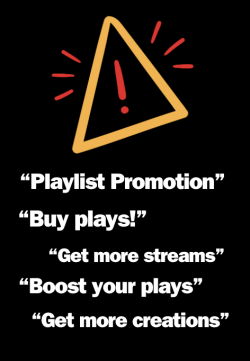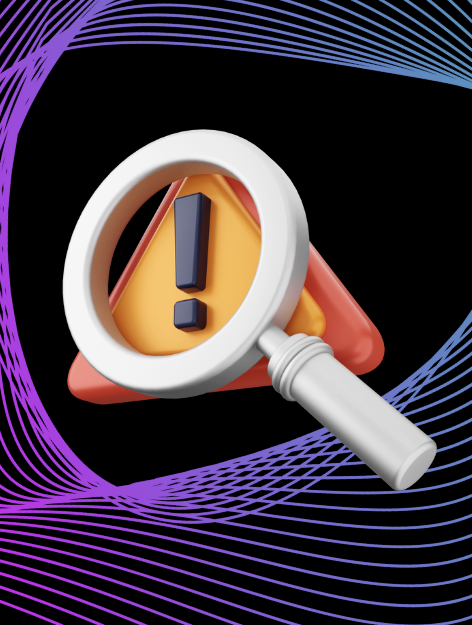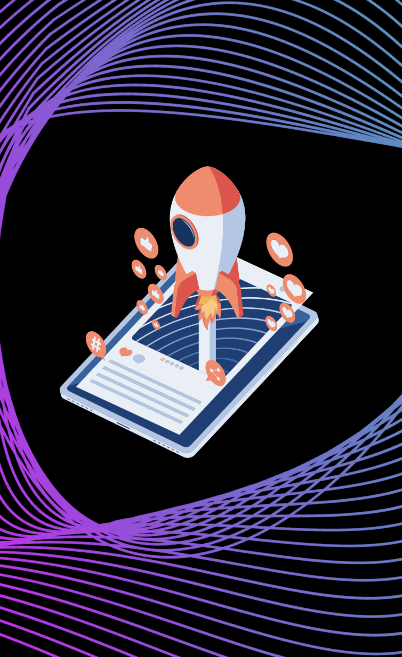
Spotify is now applying a fee for tracks where over 90% of the streams are deemed fraudulent. DSPs like TikTok, Apple and Meta are also taking a much firmer approach to streaming fraud. We urge you to read this resource page in full so you understand what streaming fraud is, how you could fall victim to it, and most importantly, how to prevent it from happening to your label.
You may have come across the term “streaming fraud” or “Artificial Streaming”, especially in discussions about DSPs like Spotify, Apple Music, TikTok and Meta. Streaming fraud entails the use of bots or streaming farms to artificially boost the number of plays a song or album receives on a streaming platform, resulting in false success.
The magnitude of this is larger than you most likely think. Analysts have estimated that 10% of streams on Spotify could be fraudulent, leading Spotify to implement clear prevention measures for 2024. The challenge arises when one of your tracks falls into this 10% category—rectifying the situation (without resorting to a full release takedown) can be quite difficult. Apple Music, Deezer, TikTok, Facebook and many others are also taking firm action.
In response, we’ve assembled a comprehensive resource to provide guidance on how to steer clear of streaming fraud. But first, let’s highlight why you must take this seriously, as it could happen to your label without your knowing about it.

Fees for streaming fraud Spotify is now applying financial penalties
Spotify has now starting charging penalties on record labels and distributors for tracks that accumulate a significant volume of illegitimate streams. These tough measures are to combat the use of fake streaming. Artists discovered to be artificially boosting their streams hold the risk having their royalties withheld, their music removed from the platform and facing permanent bans on their accounts. This could have a significant impact on your label.
- Spotify will apply a fee of €10 / $10.82 for tracks where over 90% of the streams are deemed fraudulent.
- These fees will be deducted from your label royalties
- If an artist on your label is boosting streams, your label will be have the fee applied to it

Cygnus Music pro-actively seeks out bad actors based on reports received by the DSP’s. Spotify provides artificial streaming reports each month which are carefully analysed by our team. However, the fees will be automatically applied by Spotify before the reports are given to distributors, so you may not know about an issue until it’s too late and a fee is charged. If you have been contacted by Cygnus Music, or had a fee applied to your account, you must act fast to identify the issue! It is likely that one of the following is happening;
- An artist on your label is deliberately boosting streams
- An artist is unknowingly boosting streams via some form of promotion
- Some one has initiated a campaign with a company that ‘helps’ with streams
- You’ve been added to a playlist that’s being driven purely by bots
Ultimately the fees will be applied to your label and it’s essential to immediately locate and stop the issue to prevent escalation, more fees, and potential takedowns.
Apple Music, TikTok, Meta & More... Other DSP's are taking a firm approach
Whilst Spotify is the only DSP now issuing penalty charges for artificial streaming, other key DSP’s are also taking a much more aggressive approach to streaming fraud. Any songs or artists that are identified by a DSP as having high levels of artificial streams may find that the following happens.
- Your song/s are removed from the platform without any notification.
- Your label could be given a ‘strike’.
- Labels with multiple strikes from a DSP can have their whole catalogue pulled without any notification.
- Your label could be permanently banned by the DSP.
- Your label will be flagged to Cygnus Music as problematic and we will have to audit your catalogue.
- Royalties for your label could be held and any previously paid royalties for songs with high levels of artificial streams may be recouped by the DSP.
It is important to note that this is only in severe cases where clear fraud has been identified.

Artificial streams often stem from streaming bots, capable of operating with lightning speed. For instance, on Spotify, individuals may deploy these bots to manipulate listener accounts, continuously streaming a particular song or album to artificially boost its play count. Streaming farms further heighten the issue by employing numerous bots simultaneously, generating thousands of fraudulent streams each month.
Artists and their teams typically fall victim to this in a couple of ways. Firstly, through playlist placement. If your music ends up on a playlist with fake streams, your label, your artists and your team may be significantly affected. Therefore, it’s crucial to thoroughly vet third-party playlists from your side before you get added to them. For example, if you notice unusually high engagement on the tracks on the playlists, it’s likely the streams are fake. Legitimate playlists tend to contribute to a track’s growth gradually over time, rather than a sudden surge.
It’s important to not to fall for the trap of paying for Spotify streaming boosts. Any company that guarantees a precise increase in streaming figures is likely fraudulent. Since playlist placements/ad campaigns and any PR can’t guarantee the exact percentage of followers who will stream your music, these promises are a clear indicator of deception. Steer clear of these websites and third-party services at all costs.
While these methods may seem like a quick way to gain fans and traction – it isn’t. Ultimately, you’re not building a legitimate fanbase, you’re damaging your algorithm and you’re putting your career at risk. It’s essential to ensure your music reaches a real audience and to stay vigilant about where your music is placed. Authentic fan bases will generate far more profit in the future than a quick spike in royalties.
Working together Knowledge, partnership and proactiveness is the way
Streaming fraud is a major issue in the music industry, however, you’re now aware that those promotion services promising playlist spots or increased streams are not to be trusted. You’re informed about the existence of streaming farms and the potential they have to undermine the hard work of musicians. You understand the implications of streaming fraud, and that even without your knowledge or involvement, and artist can put your label at risk. Let your artists know about the information in this article, be aware of their activities, and be super vigilant at all times.
Cygnus Music stands with you and we’ll provide help, support and assistance in protecting our clients. We’re always on top of the latest developments to ensure our label and artists, can flourish, safely, in the dynamic landscape of digital streaming.
FAQ's Here's some extra info
What are the signs that streaming bots are being used? Signs include a high number of plays with low engagement (e.g., few likes or shares), streams coming from countries where you haven’t marketed your music, and patterns of activity that seem automated, such as plays occurring at regular intervals.
Why am I as the label being penalised? As the rightsholder it is your responsibility to prevent streaming fraud on your content. Reach out to the artists immediately and find out if they know what the cause could be.
Will other DSPs start rolling out fees? There is no indication that this will happen, however DSPs are taking a much firmer approach to these issues, and will remove any content that they deem as infringing, fraudulent or ineligible. They may also withhold royalties.
How can a label inform its artists about streaming bots and the importance of avoiding them? Share this resource and provide clear guidelines on organic promotion strategies and how to recognise and report suspicious streaming activity can empower artists to protect their work and maintain integrity in their engagement metrics.
As a label should I pass on the fees to my artists? That is your decision, but you should definitely first find out why their content was flagged and discuss this resource page with your artist.
How will I know if I’ve incurred a Spotify fee? You will be notified via email and the fee will be assigned to your account.
How can we detect streaming bots on our music tracks? Monitor your analytics closely for unusual spikes in streams or engagement that don’t correlate with your marketing efforts or organic growth patterns. On platforms like Spotify and Apple Music, pay attention to the listener’s location and engagement duration.
What should we do if we suspect bot activity on our tracks? Report your suspicions to the platform directly (TikTok, Spotify, Apple Music) using their official channels. Provide any evidence you have of bot activity. The platforms have measures in place to investigate and take action against artificial stream manipulation.
My song or a number of songs have been removed by a DSP, why? The DSP may have reached out to us and flagged your content, we can quickly tell you what the issue is. If the DSP has not contacted us then we will need to contact them for information regarding the removal.
How can we avoid attracting streaming bots to our music? Avoid using services that promise rapid increases in plays or followers. Focus on organic growth strategies, such as engaging with your audience through social media, live performances, and collaborative projects.
What happens if I or my artists get recurring fees? Spotify may chose to remove the artist from the platform.
I am concerned about getting fees. Only content that has over 90% of artificial streaming will be affected.
How do I appeal a fee? Spotify offers no appeal process.
Where are copyright claims handled at Cygnus Music? These are handled at [email protected].